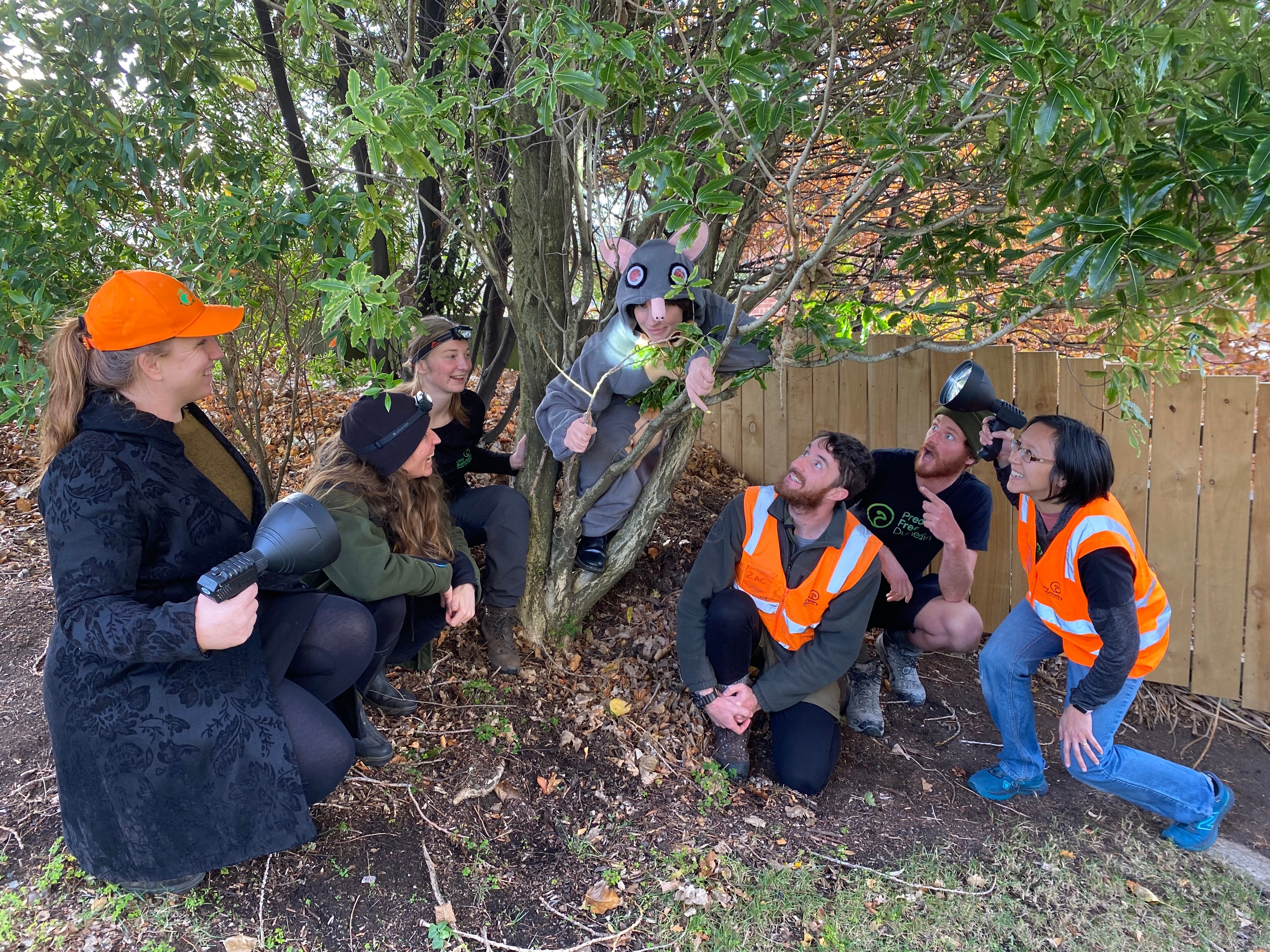
Created by Predator Free Dunedin and its three delivery partners the Otago Peninsula Biodiversity Group, the Halo Project and the City Sanctuary Project, the Spotlight on Possums event is set to run from June 15-23.
Predator Free Dunedin communications and engagement lead Jacinta Steeds urged everyone to do their bit by rugging up warm, grabbing a flashlight, and heading out into the backyard, local park or reserve to look for possums.
"You will be part of Dunedin-wide survey to find out how many possums are living among us, and also to help us map the areas where there are no possums," Ms Steeds said.
Last year’s event had brought in 170 reports, with 73 possums sighted across the city, including nine on Otago Peninsula.
The Spotlight on Possums event will be held across the City Sanctuary area, which covers 8000ha across many Dunedin suburbs and urban reserves, with a particular focus on the Otago Peninsula.
Finding any remaining possums on the peninsula will help support the work of the Otago Peninsula Biodiversity Group (OPBG), which has trapped and removed 29,000 possums from the peninsula in the past 13 years.
OPBG community engagement team leader Marcia Dale said the density of the possum population on the peninsula had dropped to "just a handful", making it even more important to find the few remaining individuals.
"We are now into the end-game of our possum eradication efforts on Otago Peninsula," Mrs Dale said.
However, there could still be possum populations in other parts of the peninsula, and the team were keen to see what was happening in the urban settlements, such as Macandrew Bay and Portobello.
"It is equally important for people to report if they have not found possums, as it is to tell us where they have been spotted — it really helps us to plan our approach to trapping," she said.
This year, the OPBG is enlisting the support of most of the 10 schools on Otago Peninsula, by running a fun competition, with prizes offered by the Royal Albatross Centre and The Opera (Otago Peninsula Eco Restoration Alliance.
"The prizes will be for those schools which can sign up the most participants in the Spotlight on Possums event," she said.
Mrs Dale said the work of the OPBG had proven very beneficial for biodiversity on Otago Peninsula, with the recovery of bush and gardens meaning there was more food for native birds such as bellbirds and tui, as well as kereru, which were returning to the area.
City Sanctuary community ranger Zac Martin said acknowledging that eradicating possums on the peninsula was of vital importance, there would be a focus this year on encouraging residents of St Clair, St Kilda and coastal areas to look for possums.
"We are keen to create buffer zones in these areas, to ensure urban possums don’t head for the peninsula," Mr Martin said.
"So it would be great if the local community could jump on board and lend us their eyes and ears."
Dunedin’s northern suburbs were also important, as they reflected activity nearer to Orokonui Ecosanctuary.
"Everywhere except the Otago Peninsula still has possums in numbers — basically anywhere there is bush, there is likely to be possums," Mr Martin said.
Urban gardens, parks and reserves were included, as there was lots of food for possums throughout those areas.
"Possums gravitate to fruit trees in urban areas, and like to get into broadleaf plants, trees with flaky bark, and will completely defoliate them from the top down.
"They also love buds, so are very fond of roses," he said.
The Spotlight on Possums event will also include the vast rural area covered by the Halo Project — which covers 42,000ha from the Silverpeaks to the sea.
Halo Project communications lead Alice Macklow said the project was particularly interested in detecting possums in the 2024 "Zero Density" focus area east of Blueskin Rd.
It would be hosting two events to look for possums in these areas — on June 18, from 7pm-8pm at Lady Thorn Rhododendron Dell, Port Chalmers; and on June 20, from 7pm-8pm, at Aramoana Domain.
During a short walk, the Halo Project team will use thermal scopes and spotlights to locate possums in the area, and will teach residents how to detect possums.
If you would like to take part, email info@haloproject.org.nz before Friday, June 14. Those who RSVP will be advised of wet weather postponements.
How to take part
How to take part in the Spotlight on Possums event.
Between June 15-23, rug up warm, head outside and look for possums in your backyard, or local park/reserve.
Move very quietly and shine your light into nooks and crannies where possums may be, such as trees, fence lines, compost bins, and bushes. Look up high, too.
Share your results — if you see a possum, do not freak it out or approach it, just tell us about it.
Share your possum sightings via the online reporting form, which can be found at predatorfreedunedin.org/report-possum. The reporting form is live all year round














